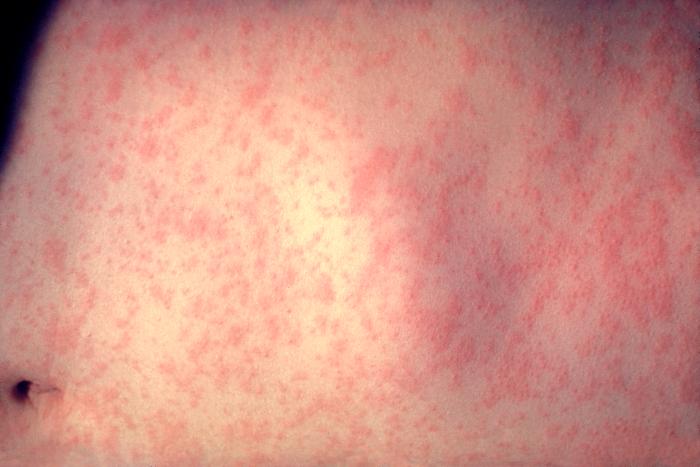Measles Vaccine May Protect Against Other Diseases

Getting vaccinated against measles may also help prevent other infectious diseases, according to a new study.
In the study, researchers looked at historical data on people in England, Wales, the United States and Denmark who were infected with measles but who died from other infectious diseases. They compared the death rates before and after mass vaccinations against measles began in the four countries that were studied.
They found that, before the measles vaccine was introduced in these countries, measles was responsible for about 50 percent of deaths that were caused by various childhood infectious diseases.
The reason why measles infection may have such a serious effect on mortality from all kinds of infectious diseases is that getting the measles appears to erase the immunity a person has previously acquired against other infectious diseases, the researchers said.
The new results were very surprising, especially because of their magnitude, said study author Michael J. Mina, a post-doctoral researcher at Princeton University.
Measles seems to bring on "immune amnesia," which increases kids' susceptibility to such diseases, Mina told Live Science. The immune system "forgets" how to fight off various infections.
Previous research has suggested that this damaging effect of measles on the immune system lasted only weeks or months, the researchers said. But the new study shows that it may last for two to three years.
Get the world’s most fascinating discoveries delivered straight to your inbox.
These days, "people are able to refuse getting vaccines for their kids because they think of the diseases that they are not vaccinated against are benign," Mina said. Those people, however, don't see the consequences of diseases such as measles enough anymore to understand why their children should be vaccinated against them, he said.
"This study … reinforces the idea that measles is absolutely not just a benign infection," Mina told Live Science. "In fact, the effects of it last for years, is really what our study shows."
The new study indeed "shows how serious measles can be," said Dr. Robert Glatter, an emergency physician at Lenox Hill Hospital in New York City, who was not involved in the study.
Moreover, "a lot of people growing up in the last few generations are not aware of how serious complications from measles can be," or that many people died from measles infection before the vaccine was available, Glatter said.
Complications from measles may include pneumonia or encephalitis, which is an acute inflammation of the brain that can lead to vomiting, seizures and death, he said.
One in 20 children with measles develops pneumonia, which is the most common cause of death from measles in young kids, according to the Centers for Disease Control and Prevention. About 1 in 1,000 children who get measles develops encephalitis, the CDC reported.
"Measles is a very serious disease that leads to these complications when you don't have adequate vaccination," Glatter said.
"The value of such vaccinations is preventing these types of deaths [associated with infectious diseases] and needless complications," he said.
The study was published today (May 7) in the journal Science.
Follow Live Science @livescience, Facebook & Google+. Original article on Live Science.
